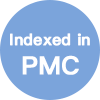REFERENCES
1. Stoll BJ, Hansen NI, Bell EF, et al; Eunice Kennedy Shriver National Institute of Child Health and Human Development Neonatal Research Network. Trends in care practices, morbidity, and mortality of extremely preterm neonates, 1993-2012. JAMA 2015;314:1039-51.
2. Parker LA, Desorcy-Scherer K, Magalhães M. Feeding strategies in preterm very low birth-weight infants: state-of-the-science review. Adv Neonatal Care 2021;21:493-502.
3. Belfort MB, Anderson PJ, Nowak VA, et al. Breast milk feeding, brain development, and neurocognitive outcomes: a 7-year longitudinal study in infants born at less than 30 weeks’ gestation. J Pediatr 2016;177:133-9.e1.
4. Corpeleijn WE, Kouwenhoven SM, Paap MC, et al. Intake of own mother’s milk during the first days of life is associated with decreased morbidity and mortality in very low birth weight infants during the first 60 days of life. Neonatology 2012;102:276-81.
5. Embleton ND, Jennifer Moltu S, Lapillonne A, et al. Enteral nutrition in preterm infants (2022): a position paper from the ESPGHAN Committee on nutrition and invited experts. J Pediatr Gastroenterol Nutr 2023;76:248-68.
6. Meinzen-Derr J, Poindexter B, Wrage L, Morrow AL, Stoll B, Donovan EF. Role of human milk in extremely low birth weight infants’ risk of necrotizing enterocolitis or death. J Perinatol 2009;29:57-62.
7. Miller J, Tonkin E, Damarell RA, et al. A systematic review and meta-analysis of human milk feeding and morbidity in very low birth weight infants. Nutrients 2018;10:707.
8. Dharel D, Singhal N, Wood C, et al; Canadian Neonatal Network (CNN) and Canadian Preterm Birth Network (CPTBN) Investigators. Rates and determinants of mother’s own milk feeding in infants born very preterm. J Pediatr 2021;236:21-7.e4.
9. ESPGHAN Committee on Nutrition; Arslanoglu S, Corpeleijn W, Moro G, et al. Donor human milk for preterm infants: current evidence and research directions. J Pediatr Gastroenterol Nutr 2013;57:535-42.
10. Klotz D, Wesołowska A, Bertino E, et al. The legislative framework of donor human milk and human milk banking in Europe. Matern Child Nutr 2022;18:e13310.
11. World Health Organization. Donor human milk for low-birth-weight infants. Available from: https://www.who.int/tools/elena/interventions/donormilk-infants. [Last accessed on 20 Nov 2024].
12. Committee on Nutrition; Section on Breastfeeding; Committee on Fetus and Newborn. Donor human milk for the high-risk infant: preparation, safety, and usage options in the United States. Pediatrics 2017;139:e20163440.
14. Quigley M, Embleton ND, McGuire W. Formula versus donor breast milk for feeding preterm or low birth weight infants. Cochrane Database Syst Rev 2019;7:CD002971.
15. Bajwa RU, Raju MNP, Govande VP, Hemingway M, Hammonds K, Vora N. Infant nutrition (donor human milk vs. maternal milk) and long-term neurodevelopmental and growth outcomes in very low birth weight infants. J Matern Fetal Neonatal Med 2022;35:10025-9.
16. Kazmi SH, Berman S, Caprio M, Wachtel EV. The impact of donor breast milk on metabolic bone disease, postnatal growth, and neurodevelopmental outcomes at 18 months’ corrected age. JPEN J Parenter Enteral Nutr 2022;46:600-7.
17. Madore LS, Bora S, Erdei C, Jumani T, Dengos AR, Sen S. Effects of donor breastmilk feeding on growth and early neurodevelopmental outcomes in preterm infants: an observational study. Clin Ther 2017;39:1210-20.
18. Cartagena D, Penny F, McGrath JM, Reyna B, Parker LA, McInnis J. Differences in neonatal outcomes among premature infants exposed to mother’s own milk versus donor human milk. Adv Neonatal Care 2022;22:539-49.
19. Gregory KE, Samuel BS, Houghteling P, et al. Influence of maternal breast milk ingestion on acquisition of the intestinal microbiome in preterm infants. Microbiome 2016;4:68.
20. Selma-Royo M, Calvo Lerma J, Cortés-Macías E, Collado MC. Human milk microbiome: from actual knowledge to future perspective. Semin Perinatol 2021;45:151450.
21. Gopalakrishna KP, Hand TW. Influence of maternal milk on the neonatal intestinal microbiome. Nutrients 2020;12:823.
22. Parker LA, Koernere R, Fordham K, et al. Mother’s own milk versus donor human milk: what’s the difference? Crit Care Nurs Clin North Am 2024;36:119-33.
23. Niemarkt HJ, De Meij TG, van Ganzewinkel CJ, et al. Necrotizing enterocolitis, gut microbiota, and brain development: role of the brain-gut axis. Neonatology 2019;115:423-31.
24. Rozé JC, Ancel PY, Marchand-Martin L, et al; EPIFLORE Study Group. Assessment of neonatal intensive care unit practices and preterm newborn gut microbiota and 2-year neurodevelopmental outcomes. JAMA Netw Open 2020;3:e2018119.
25. Sarkar A, Yoo JY, Valeria Ozorio Dutra S, Morgan KH, Groer M. The association between early-life gut microbiota and long-term health and diseases. J Clin Med 2021;10:459.
26. Page MJ, McKenzie JE, Bossuyt PM, et al. The PRISMA 2020 statement: an updated guideline for reporting systematic reviews. BMJ 2021;372:n71.
27. Mshvildadze M, Neu J. The infant intestinal microbiome: friend or foe? Early Hum Dev 2010;86 Suppl 1:67-71.
28. Fraher MH, O’Toole PW, Quigley EM. Techniques used to characterize the gut microbiota: a guide for the clinician. Nat Rev Gastroenterol Hepatol 2012;9:312-22.
29. DedupEndNote (Version 1.0.0). Available online: https://github.com/globbestael/DedupEndNote. [Last accessed on 20 Nov 2024].
30. Deeks JJ, Dinnes J, D’Amico R, et al; International Stroke Trial Collaborative Group, European Carotid Surgery Trial Collaborative Group. Evaluating non-randomised intervention studies. Health Technol Assess 2003;7:iii-x, 1-173.
31. Arboleya S, Saturio S, Suárez M, et al. Donated human milk as a determinant factor for the gut bifidobacterial ecology in premature babies. Microorganisms 2020;8:760.
32. Piñeiro-Ramos JD, Parra-Llorca A, Ten-Doménech I, et al. Effect of donor human milk on host-gut microbiota and metabolic interactions in preterm infants. Clin Nutr 2021;40:1296-309.
33. Ford SL, Lohmann P, Preidis GA, et al. Improved feeding tolerance and growth are linked to increased gut microbial community diversity in very-low-birth-weight infants fed mother’s own milk compared with donor breast milk. Am J Clin Nutr 2019;109:1088-97.
34. Kumbhare SV, Jones WD, Fast S, et al. Source of human milk (mother or donor) is more important than fortifier type (human or bovine) in shaping the preterm infant microbiome. Cell Rep Med 2022;3:100712.
35. Parra-Llorca A, Gormaz M, Alcántara C, et al. Preterm gut microbiome depending on feeding type: significance of donor human milk. Front Microbiol 2018;9:1376.
36. Cong X, Judge M, Xu W, et al. Influence of feeding type on gut microbiome development in hospitalized preterm infants. Nurs Res 2017;66:123-33.
37. Morais J, Marques C, Faria A, et al. Influence of human milk on very preterms’ gut microbiota and alkaline phosphatase activity. Nutrients 2021;13:1564.
38. Dorling J, Abbott J, Berrington J, et al; SIFT Investigators Group. Controlled trial of two incremental milk-feeding rates in preterm infants. N Engl J Med 2019;381:1434-43.
39. Chi C, Fan Y, Li C, et al. Early gut microbiota colonisation of premature infants fed with breastmilk or formula with or without probiotics: a cohort study. Nutrients 2021;13:4068.
40. Manor O, Dai CL, Kornilov SA, et al. Health and disease markers correlate with gut microbiome composition across thousands of people. Nat Commun 2020;11:5206.
41. Madan JC, Salari RC, Saxena D, et al. Gut microbial colonisation in premature neonates predicts neonatal sepsis. Arch Dis Child Fetal Neonatal Ed 2012;97:F456-62.
42. Shaw AG, Sim K, Randell P, et al. Late-onset bloodstream infection and perturbed maturation of the gastrointestinal microbiota in premature infants. PloS one 2015;10:e0132923.
43. Heida FH, van Zoonen AGJF, Hulscher JBF, et al. A necrotizing enterocolitis-associated gut microbiota is present in the meconium: results of a prospective study. Clin Infect Dis 2016;62:863-70.
44. Rozé JC, Ancel PY, Lepage P, et al; Nutrition EPIPAGE 2 study group, EPIFLORE Study Group. Nutritional strategies and gut microbiota composition as risk factors for necrotizing enterocolitis in very-preterm infants. Am J Clin Nutr 2017;106:821-30.
45. Sim K, Shaw AG, Randell P, et al. Dysbiosis anticipating necrotizing enterocolitis in very premature infants. Clin Infect Dis 2015;60:389-97.
46. Zhou Y, Shan G, Sodergren E, Weinstock G, Walker WA, Gregory KE. Longitudinal analysis of the premature infant intestinal microbiome prior to necrotizing enterocolitis: a case-control study. PLoS One 2015;10:e0118632.
47. Itani T, Ayoub Moubareck C, Mangin I, Butel MJ, Karam Sarkis D. Individual variations in intestinal microbiota were higher in preterm infants with necrotising enterocolitis than healthy controls. Acta Paediatr 2019;108:2294-5.
48. Mai V, Young CM, Ukhanova M, et al. Fecal microbiota in premature infants prior to necrotizing enterocolitis. PLoS One 2011;6:e20647.
49. Stewart CJ, Marrs ECL, Magorrian S, et al. The preterm gut microbiota: changes associated with necrotizing enterocolitis and infection. Acta Paediatr 2012;101:1121-7.
50. Torrazza RM, Ukhanova M, Wang X, et al. Intestinal microbial ecology and environmental factors affecting necrotizing enterocolitis. PLoS One 2013;8:e83304.
51. Wang Y, Hoenig JD, Malin KJ, et al. 16S rRNA gene-based analysis of fecal microbiota from preterm infants with and without necrotizing enterocolitis. ISME J 2009;3:944-54.
52. Beghetti I, Barone M, Turroni S, et al. Early-life gut microbiota and neurodevelopment in preterm infants: any role for Bifidobacterium? Eur J Pediatr 2022;181:1773-7.
53. Oliphant K, Ali M, D’Souza M, et al. Bacteroidota and Lachnospiraceae integration into the gut microbiome at key time points in early life are linked to infant neurodevelopment. Gut Microbes 2021;13:1997560.
54. van den Berg JP, Westerbeek EA, Bröring-Starre T, Garssen J, van Elburg RM. Neurodevelopment of preterm infants at 24 months after neonatal supplementation of a prebiotic mix: a randomized trial. J Pediatr Gastroenterol Nutr 2016;63:270-6.
55. Cuna A, Morowitz MJ, Ahmed I, Umar S, Sampath V. Dynamics of the preterm gut microbiome in health and disease. Am J Physiol Gastrointest Liver Physiol 2021;320:G411-9.
56. Moschino L, Verlato G, Duci M, et al. The metabolome and the gut microbiota for the prediction of necrotizing enterocolitis and spontaneous intestinal perforation: a systematic review. Nutrients 2022;14:3859.
57. Xiang Q, Yan X, Shi W, Li H, Zhou K. Early gut microbiota intervention in premature infants: application perspectives. J Adv Res 2023;51:59-72.
58. Aguilar-Lopez M, Dinsmoor AM, Ho TTB, Donovan SM. A systematic review of the factors influencing microbial colonization of the preterm infant gut. Gut Microbes 2021;13:1-33.
59. Xu W, Judge MP, Maas K, et al. Systematic review of the effect of enteral feeding on gut microbiota in preterm infants. J Obstet Gynecol Neonatal Nurs 2018;47:451-63.
60. Kontopodi E, Boeren S, Stahl B, van Goudoever JB, van Elburg RM, Hettinga K. High-temperature short-time preserves human milk’s bioactive proteins and their function better than pasteurization techniques with long processing Times. Front Pediatr 2021;9:798609.
61. Moro GE, Girard M, Peila C, et al. New alternatives to holder pasteurization in processing donor milk in human milk banks. Front Nutr 2024;11:1409381.
62. Mallardi D, Tabasso C, Piemontese P, et al. Inoculation of mother’s own milk could personalize pasteurized donor human milk used for feeding preterm infants. J Transl Med 2021;19:420.









